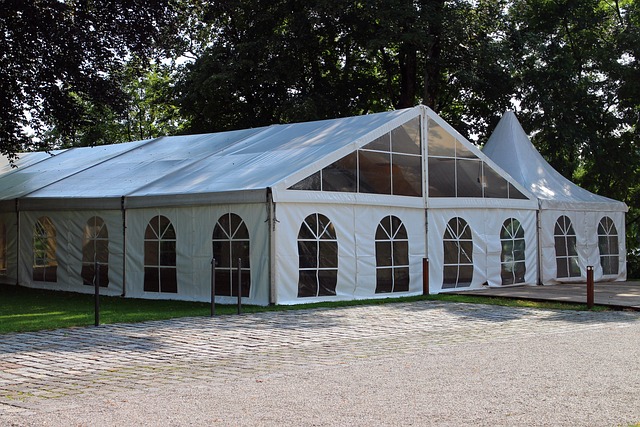Event planning for local businesses requires a deep understanding of regional preferences and cultural nuances to create tailored experiences. It involves identifying trends, analyzing competitors, and leveraging local resources to drive business growth. Strategically blending creativity, detail-orientation, and communication, organizers set clear objectives, manage logistics, and utilize technology (like event planning software) for seamless execution. By embracing digital solutions, they enhance attendee engagement, collect valuable data, and create lasting impressions for successful corporate gatherings.
In today’s competitive market, corporate events play a pivotal role in fostering connections and enhancing brand visibility. Understanding the local business event planning landscape is key to success. This article delves into strategic insights tailored for event planners aiming to excel in coordinating corporate gatherings. We explore critical strategies, from understanding cultural nuances to leveraging technology, ensuring seamless execution. By adopting industry best practices, local businesses can host memorable events that drive engagement and leave a lasting impression.
- Understanding the Local Business Event Planning Landscape
- Key Strategies for Successful Corporate Event Coordination
- Leveraging Technology and Industry Best Practices for Seamless Execution
Understanding the Local Business Event Planning Landscape

In the dynamic world of event planning, understanding the local business landscape is key to creating successful corporate events. Event planning for local businesses involves navigating a unique environment where cultural nuances, community engagement, and regional preferences play significant roles. By delving into the specific needs and goals of local companies, event coordinators can design tailored experiences that resonate with attendees.
Local business event planning demands a deep understanding of the market, including identifying key industry trends, recognizing competitors’ strategies, and staying abreast of emerging technologies relevant to the target audience. This knowledge enables event organizers to create innovative and engaging programs that foster networking, build brand awareness, and drive business growth. Additionally, leveraging local resources, such as venues, caterers, and entertainment options, ensures an authentic experience that reflects the area’s unique character.
Key Strategies for Successful Corporate Event Coordination

Successful corporate event coordination requires a strategic approach that combines creativity, attention to detail, and effective communication. For local businesses looking to host memorable events, prioritizing clear objectives is paramount. Event planners should work closely with clients to define goals, whether it’s brand awareness, team building, or client appreciation. This foundation guides every decision, from venue selection to entertainment choices, ensuring the event aligns with the desired outcomes.
A key strategy involves tailoring the event experience. Understanding the unique needs and preferences of your target audience is essential. Incorporate interactive elements, engaging speakers, or themed activities that resonate with attendees. Effective coordination also includes meticulous planning for logistics, including catering, audiovisual setup, and guest management. Regular communication with vendors and staff ensures a seamless execution, allowing event planners to address any challenges promptly and maintain the overall success of the corporate gathering.
Leveraging Technology and Industry Best Practices for Seamless Execution

In today’s digital era, leveraging technology and industry best practices is paramount for event planners aiming to deliver seamless experiences for local businesses. Event planning software and mobile apps streamline key aspects, from venue selection and registration management to scheduling and budgeting. These tools enable real-time communication, efficient task delegation, and data-driven decision-making, ensuring every detail is accounted for.
Moreover, integrating digital solutions enhances attendee engagement through interactive experiences, personalized content, and seamless check-ins. For local businesses, this translates into increased participation, valuable data collection, and opportunities for post-event follow-ups. By embracing technology and adhering to industry best practices, event planners can guarantee successful corporate gatherings that leave a lasting impression.
Corporate events, when expertly coordinated, can foster strong business relationships and create memorable experiences. By understanding the local event planning landscape, implementing key strategies, and leveraging technology, event organizers can ensure seamless execution. Incorporating industry best practices allows local businesses to elevate their corporate events, making them game-changers in fostering community engagement and achieving marketing goals. This approach is vital for any business looking to leave a lasting impression and build successful partnerships.
